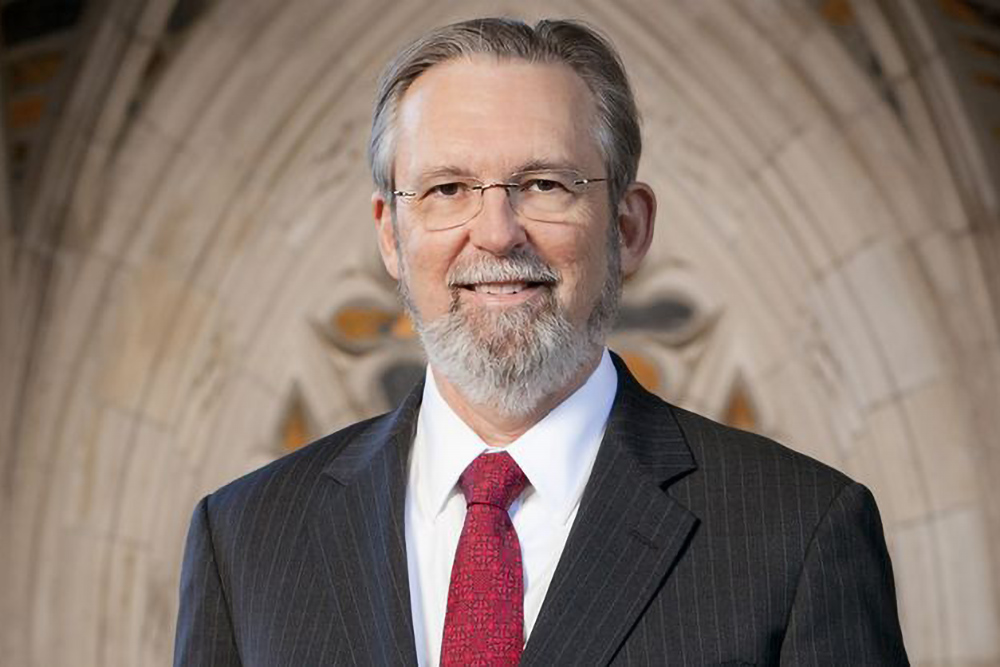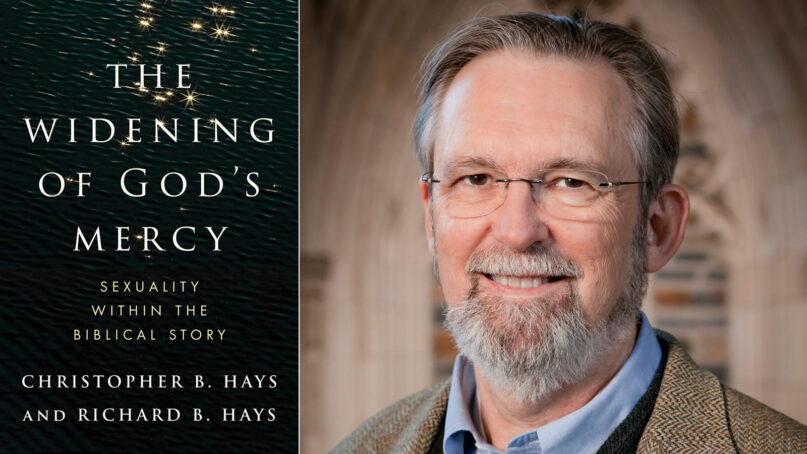
(RNS) — Richard Hays, a renowned New Testament scholar and former dean of Duke Divinity School known for his influential books on Christian ethics and his change of mind about same-sex marriage, died Friday (Jan. 3) at his home in Nashville, Tennessee, from pancreatic cancer. Hays was 76.
“He was surrounded by his books, overseen by photos of his parents and wide family, and with Christmas music from Kings College Cambridge playing softly in the background,” his wife, Judy, wrote on CaringBridge.org, in announcing his death.
A former English teacher and pastor, Hays was a graduate of Yale University and Yale Divinity School and earned his doctorate from Emory University in 1981. He then returned to teach New Testament at Yale from 1981 to 1991 and then at Duke Divinity School until his retirement in 2018.
For much of his career, he was perhaps best known for his 1996 book, “The Moral Vision of the New Testament,” in which he argued that same-sex relationships were “one among many tragic signs that we are a broken people, alienated from God’s loving purpose.” His well-respected scholarly work was cited by Christian leaders who viewed same-sex relationships as sinful and who opposed LGBTQ affirmation in churches.
This past year, Hays publicly changed his mind — in what he described as an act of repentance for the way his work had been used to harm LGBTQ people and to divide Christians — in a new book, “The Widening of God’s Mercy: Sexuality Within the Biblical Story,” co-authored with his son, Christopher Hays, an Old Testament scholar.
In the book’s introduction, Richard Hays recounts how his brother initially balked at attending their mother’s funeral, because her church, where the service would be held, affirmed same-sex relationships. That prompted him to reflect on the place of LGBTQ Christians in the church.

“The Widening of God’s Mercy: Sexuality Within the Biblical Story” and co-author Richard Hays. (Photo courtesy of Duke)
In the years since 1996, Hays had been rethinking his interpretation of the biblical texts barring same-sex relations because of his experience of teaching gay students in seminary and seeing the faithful service of gay Christians in local churches, he told Pete Wehner in a New York Times interview last year.
That included Hays’ own congregation, where “I saw church members who were not theological students or anything like that but who were exercising roles of gracious and meaningful leadership,” he told Wehner.
Hays was also concerned about what he called “smug hostility” among more conservative Christians toward LGBTQ church members, something he felt in part responsible for and something he hoped to make amends for.
“The present book is, for me, an effort to offer contrition and to set the record straight on where I now stand. … I am deeply sorry,” he told RNS in 2024. “The present book can’t undo past damage, but I pray that it may be of some help.”
The new book, which argues God has changed his mind about same-sex relationships and other boundaries that keep some people outside his grace, was seen as a betrayal by conservatives who agreed with his former book, with some going as far as to call it heretical. But Hays told National Public Radio that he was at peace with his change of mind, though he knew it would cause controversy.
“So there’s a sense in which I’m eating some of my own words, and I’m concerned that it will perhaps burn some bridges and break some relationships that I’ve cherished,” he told NPR. “But as I age, I wanted my final word on the subject to be out there. And so there it is.”
Hays was initially diagnosed with pancreatic cancer in July 2015 and at the time had been given a dire prognosis, with his doctor telling him he might be dead by Christmas of that year. But surgery and chemotherapy put his cancer into remission until 2022, when it returned. Despite more treatment, the cancer had spread to his lungs by the summer of 2023 and eventually he went into hospice care.
This past fall, he wrote a health update asking for prayer, knowing the cancer would likely soon take his life, and sharing how his faith was shaping his approach to life in his dying days.
“Over these past nine years, Judy and I have become practiced in looking death in the face,” he wrote. “We continue to trust that we are in the hands of a merciful God who loves us. And we continue to anticipate the power of the resurrection. It’s a hard thing to know with some certainty that I will not be here to watch my grandchildren grow up. But as in years before, we remain grateful for each new day in which we can join the Psalmist in proclaiming: ‘This is the day that the Lord has made; let us rejoice and be glad in it.’”
Hays is survived by his wife, Judy, and children Christopher and Sarah.
According to an update posted on CaringBridge, Hays will be interred in Oklahoma City, with services to follow at a later date at McKendree United Methodist Church in Nashville and at Duke.
